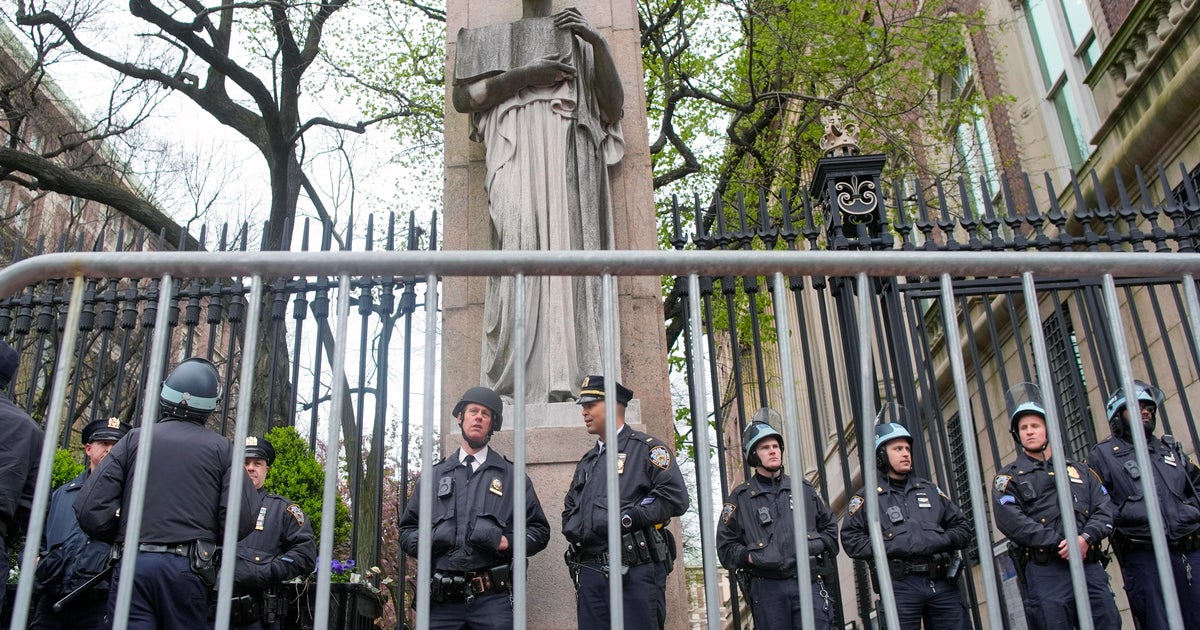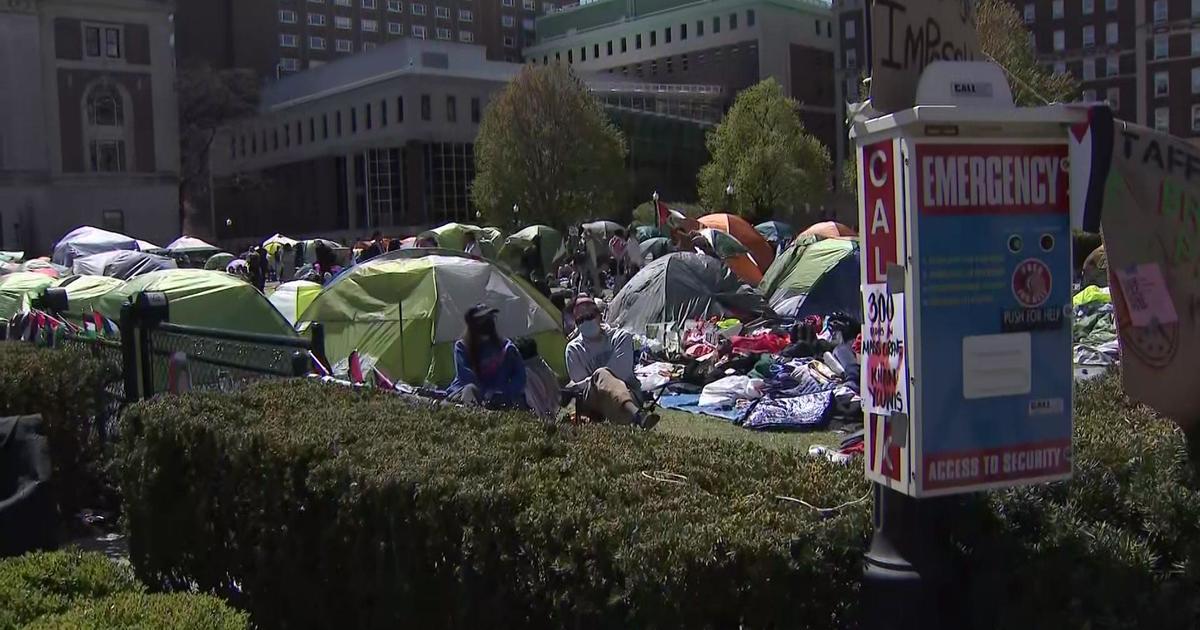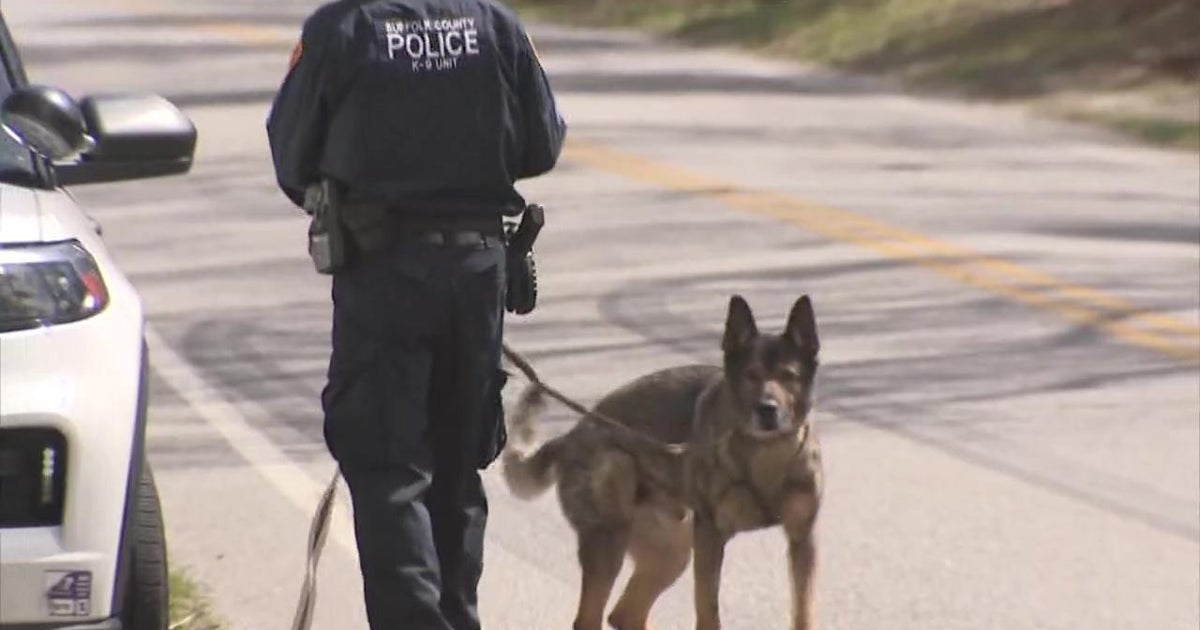Connecticut Holding Training Conference After Rash Of Police Suicides
HARTFORD, CT (AP / WCBS 880) - No one has a good explanation for why four Connecticut police officers killed themselves from April to June.
For law enforcement officials gathering at a conference Wednesday, the most important question now is how to prevent others from taking their own lives.
WCBS 880 Connecticut Bureau Chief Fran Schneidau On The Story
Podcast
The event, titled "Training the Mind: Preventing Police Suicide and Promoting Mental Wellness" at Central Connecticut State University' is sponsored by the university, the Connecticut Alliance to Benefit Law Enforcement and the state Department of Mental Health and Addiction Services.
The conference in New Britain is expected to draw nearly 300 police officials from across the state.
Like many police departments, Norwalk has dealt with suicides.
Police Chief Harry Rilling says his command officers are trained in intervention and sensitive to triggers like depression that may signal a serious problem. But when an officer takes his or her life, he says it's devastating.
"Everybody starts second-guessing themselves and wondering 'Should I have noticed something?' Certainly we've lost a comrade and that's extremely, extremely saddening to us," he told WCBS 880 Connecticut Bureau Chief Fran Schneidau.
Redding Police Chief Douglas Fuchs said recent suicides have brought renewed focus to what has long been a concern in the law enforcement community.
"Being a police officer in this state or any state comes with many personal challenges - the hours of work, what the officers see,'' said Fuchs, president of the Connecticut Police Chiefs Association. "Most people don't call the police when they're having a good day. We're dealing with public when they're at their worst.''
National studies show that about 140 police officers across the country killed themselves each year from 2008 to 2010, and that officers are three times more likely to kill themselves than to be killed by others.
Another recent study by the Badge of Life, a group of active and retired police officers, medical experts and families affected by suicide, found that police officers have a higher suicide rate than the general public. The research found that while the suicide rate for the general public was 11 per 100,000 people, police officers' rate was 17 per 100,000.
Authorities say two Connecticut police officers killed themselves in June. Southbury officer Anton Tchorzyk Jr. was found dead of a self-inflicted gunshot wound at his home in Watertown, and Groton City Lt. Thomas Forbes shot himself in the head at the police department.
In May, New Britain Capt. Matthew Tuttle shot himself in the head at his Middletown home, and in April, Rocky Hill Sgt. Leonard Kulas was found dead of a self-inflicted gunshot wound in his cruiser at a local cemetery, officials said.
Louise Pyers, executive director and founder of the Connecticut Alliance to Benefit Law Enforcement, said the deaths of Tchorzyk, Forbes and Tuttle appeared to have one thing in common - they were nearing retirement.
"We do know that police officers near retirement are at higher risk (of suicide),'' Pyers said. "Some officers put all their identity into being a police officer and then when it comes time to retire they don't feel they have a purpose.''
Pyers, a mental health counselor, added it's not clear if that was the case with Tchorzyk, Forbes and Tuttle.
"We really don't know why so many happened in succession,'' she said about the four deaths. "We're afraid that it may be because police work is so much more complex than it used to be and police officers are exposed to traumatic events over and over again throughout their careers.''
Pyers' nonprofit group, which was formed in 1998 and incorporated in 2003, provides training to police agencies on how officers can deal with mentally ill suspects and with their own mental health problems.
Wednesday's conference is centered on providing police officials a wealth of information on how to help officers cope with the stresses of their jobs. Things police officers can do, Pyers said, include getting mental health checkups once a year, forming peer support groups and recognizing warning signs.
The event's keynote speaker will be John Violanti, an associate research professor at the State University of New York-Buffalo. He is a former New York state trooper who has been studying police stress, trauma, suicide and health.
(TM and Copyright 2011 CBS Radio Inc. and its relevant subsidiaries. CBS RADIO and EYE Logo TM and Copyright 2011 CBS Broadcasting Inc. Used under license. All Rights Reserved. This material may not be published, broadcast, rewritten, or redistributed. The Associated Press contributed to this report.)



